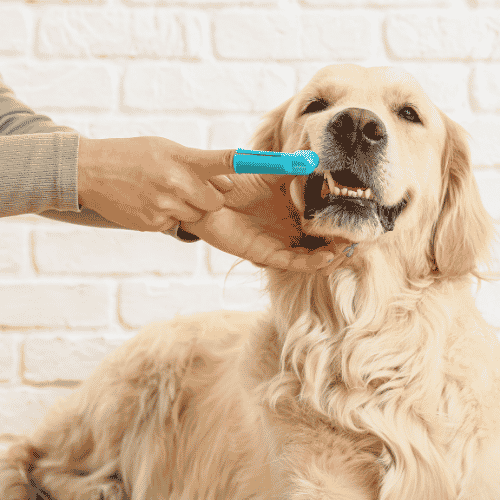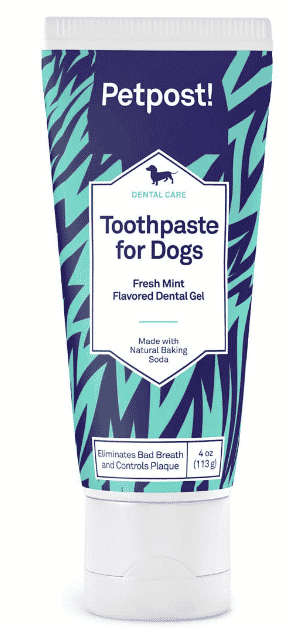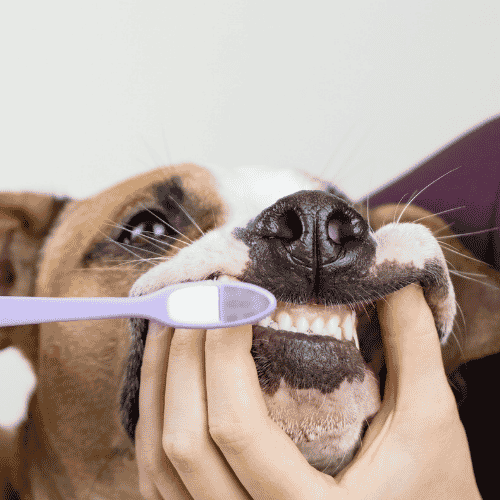Regular brushing is one of the most important things you can do to keep your dog’s mouth and body healthy. It has been said that neem oil is a remarkable substance, particularly effective as an insect repellent, soothing to the skin, effective in treating ringworm, and capable of reducing inflammation. But is it safe for your dog to use neem oil toothpaste?

There are some dog species that may benefit from using neem oil toothpaste, but the oil does have its limitations, according to vets. So, before using it on your dog, you should research the associated hazards and learn how to use it safely and effectively.
What Exactly Is a Neem Oil?
Neem oil is made by pressing the seeds or fruit of the neem tree, scientifically known as Azadirachta indica.
Many people think this oil is essential to use in various activities because it smells so strong. The presence of multiple triterpenes in the neem seeds is responsible for the strong scent; these same triterpenes are also responsible for the bitter flavor of this oil and the highly regarded therapeutic benefits.
How to Use Neem Oil?
Neem oil shouldn’t be used internally and should instead be applied topically. It may be purchased in the form of shampoos, sprays, and topical tinctures in the marketplace. However, not all items are made equal. Because of this, it is essential to gain neem oil from a reliable source.
You can try to prepare your own remedy at home if you and your pet can tolerate the scent of the ingredients. Most veterinarians concur that the finished product must not have more than one percent neem oil.
Before treating the product, do an allergy test on your pet in a tiny area first to see whether or not he has any reaction to the substance.
Manufacturing
Neem oil quality is dependent on its making process, just like any other product. In addition, not all products containing neem oil are made equal. The process that is used to extract the oil is of vital importance.
Neem oil is extracted from the neem seeds in one of two primary techniques, which are as follows:
- Pressing
- Solvent extraction
Knowing the oil’s source and extraction method is essential when applying neem oil toothpaste to your dog. Some producers test their neem oil products to guarantee no harmful compounds remain.
What You Need to Know About Dog Toothpaste
It’s essential to explore the fundamentals of periodontal disease and dog toothpaste. Plaque and gingivitis are the two conditions that can lead to periodontal disease, which is a disease that affects both the teeth and the gums. Plaque is formed around your dog’s gum line due to food particles and germs that gather there. In addition to affecting your dog’s mouth, periodontal disease has the potential to introduce germs into the bloodstream. It could be difficult for your dog to eat, and it might also affect the organs’ ability to filter and pump blood.
Because of this, brushing your dog’s teeth is one of the most effective things you can do to protect them from developing periodontal disease. The finest way to clean your dog’s teeth is to use a toothbrush made specifically for canines and toothpaste made for canines. The majority of different kinds of dog toothpaste have abrasive components that help remove plaque and germs from the teeth.
We personally recommend: Petpost | Toothpaste for Dogs – Coconut Oil and Baking Soda Based Dental Gel

When it comes to brushing your dog’s teeth, the single most essential thing to keep in mind is that you should never use human toothpaste on your dog. The artificial sweetener xylitol is commonly found in human toothpaste. However, it is harmful to dogs and should be avoided. Xylitol is known to lower blood sugar levels in dogs, in addition to possibly causing harm to the liver.
Is Neem Oil Toothpaste For Dogs Safe To Use?
When properly diluted, neem oil is safe for use topically on dogs and causes no risk to their health. However, you should always check with your dog’s veterinarian before administering neem oil to your canine companions. Several medical conditions can affect a dog’s response to neem oil, and several drugs can have an effect. In addition, neem oil might cause an allergic reaction or sensitivity in some canines.
If you see any unusual behavior in your dog after applying neem oil topically, such as irritation, excessive salivation, difficulty breathing, sneezing, coughing, vomiting, diarrhea, decreased appetite, or any other unusual symptoms, discontinue using the neem oil immediately and talk with a veterinarian.
Dog Teeth Cleaning Anesthesia Side Effects
Dog Neem Oil Precautions
As noted, neem oil toothpaste for dogs seems to be extremely safe. However, if you want to ensure that your canine pal remains healthy and well while using this oil for your pup, the following are some precautions that you should take as a pet parent.

- When purchasing things for your pet, you should search for organizations that have received many positive evaluations and are truthful and honest regarding the quality and quantity of their goods.
- If your pup is currently taking any medications, whether oral or topical ointments, you should ask your pet vet if it is safe to use this oil in combination with those medications.
- If you have any doubts about using neem oil or if your canine pal is sensitive, avoid using it. Several natural treatments can help your dog reach maximum health under the advice of any qualified pet vet.
How Often Should You Wash Your Dog’s Teeth?
We should brush our dog’s teeth at least twice every day. The minimal suggestion for plaque removal and tartar prevention is three times per week of brushing.
What Ingredients Are Avoided In Your Dog’s Toothpaste?
When you have an allergic dog, it becomes essential to read labels. However, everyone needs to be careful of what their pets are eating. The following are the components that should not be included in the toothpaste that you give to your dog:
- Artificial sweeteners dextrose, sodium saccharin, and sorbitol
- Alcohol
- Artificial colors
- Artificial flavors
- Phosphoric acid
- Potassium thiocyanate
- Sodium lauryl sulfate
- Triclosan

Veterinarian (DVM, MS) Content Writer, Blogger, and WordPress Developer. Working as a pet/animal/bird/fish/reptile/wildlife writer for the past 7 years on many renowned platforms.




